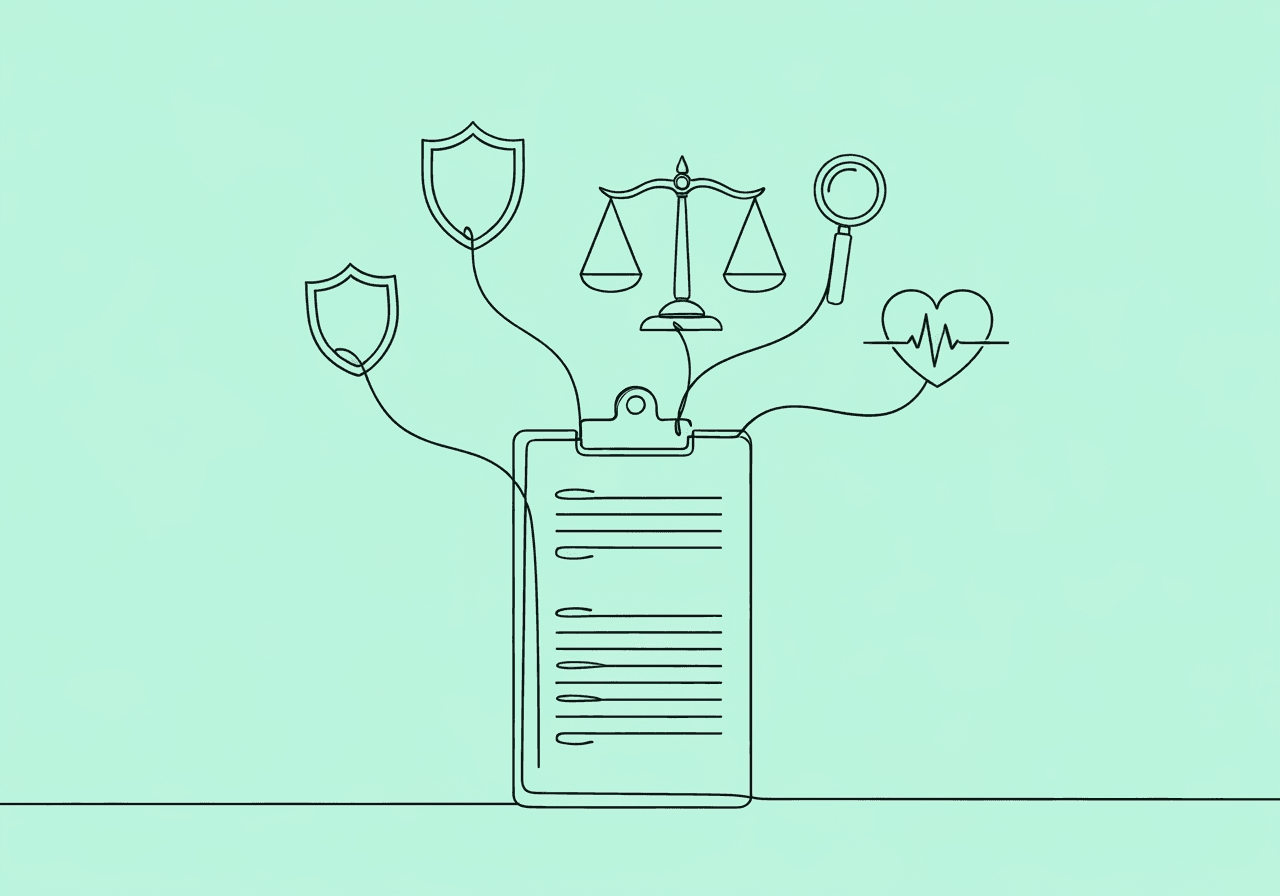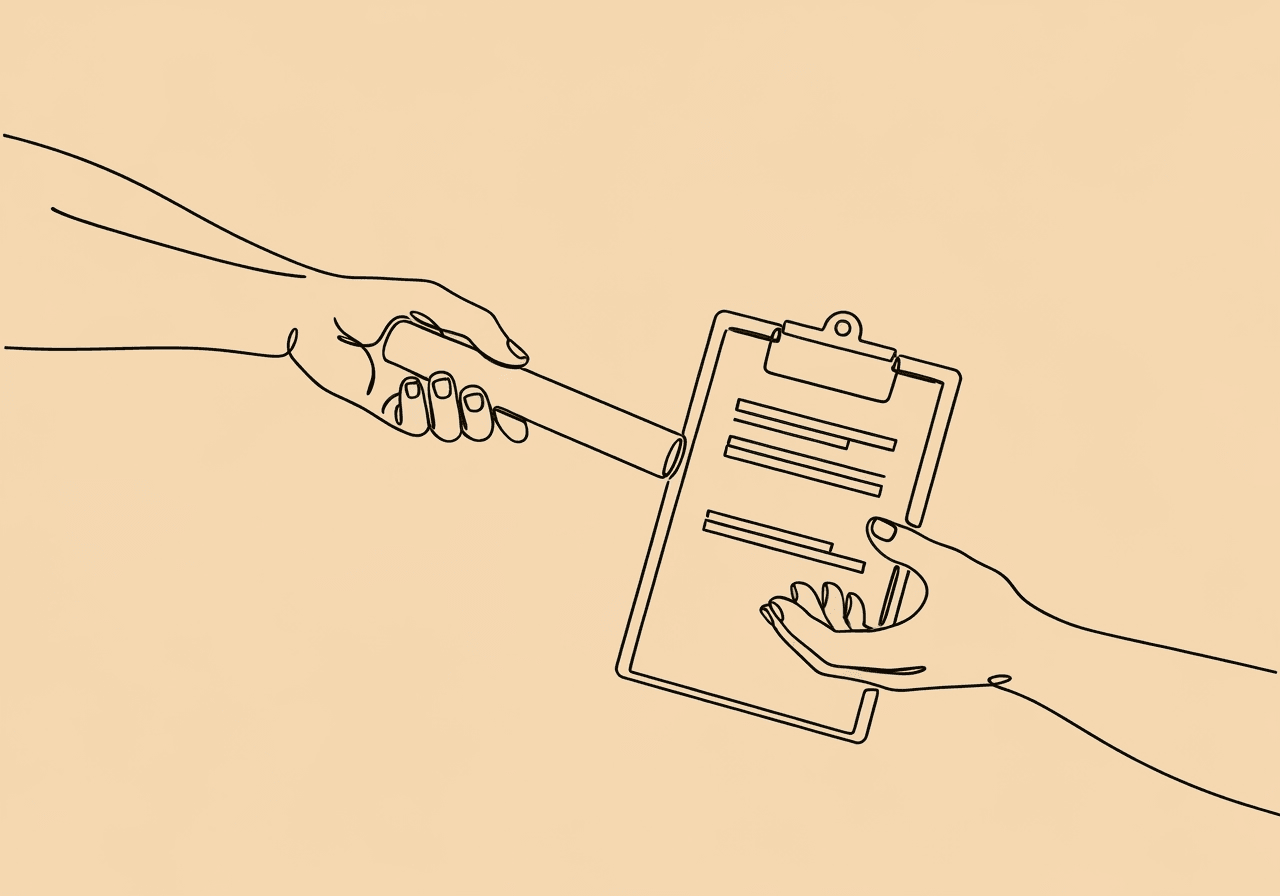BCBA Mandatory Self-Reporting: The 30-Day Rule Guide

When working in applied behavior analysis (ABA), client trust and professional integrity are essential. That's why BCBA mandatory self-reporting to the Behavior Analyst Certification Board (BACB) is a critical process for ensuring accountability and protecting clients. As a Board Certified Behavior Analyst (BCBA), you’re obligated to disclose certain ethical lapses, legal issues, or health concerns. Failing to report them on time could put your certification at risk. This guide clearly explains the 30-day reporting rule and gives you actionable steps to stay compliant.
In this guide, you'll learn about:
- The core requirements for BCBA mandatory self-reporting.
- Which event categories you need to report.
- A step-by-step process for filing a compliant report.
- Best practices for keeping your BACB ethics documentation audit-ready.
- Strategies to avoid common reporting pitfalls and their consequences.
Understanding BACB's Mandatory Self-Reporting Requirements for BCBAs
The BACB mandates self-reporting to promote openness and public safety in behavior analysis. This requirement is detailed in both the Ethics Code for Behavior Analysts (2024) and the BCBA Handbook (2024). Specifically, section 1.16 of the Ethics Code requires BCBAs to disclose critical information that could impact their ability to practice ethically or affect their certification status.
This obligation begins the moment you become aware of an issue, emphasizing proactive communication over reactive defense. Self-reporting helps create a culture of integrity, allowing the BACB to assess potential risks early on. Non-compliance doesn't just violate the ethics code; it can make other issues worse.
For BCBAs, this means you need to evaluate any incident against BACB criteria. The process starts with a simple question: Does this event pose a risk to my clients or the profession? If you're ever unclear, BACB resources suggest consulting with supervisors or ethics experts to ensure your decisions align with professional standards.
The 30-Day Reporting Rule: Timing and Rationale
The 30-day reporting rule is a key part of BCBA mandatory self-reporting. It requires you to disclose a reportable event within 30 days of becoming aware of it. This timeline, detailed in the Considerations for Self-Reporting (BACB, 2021), is designed to prevent delays that could harm clients or weaken public trust.
The clock starts as soon as you are aware of the situation. You don't need to wait for the outcome of an investigation or a court decision. For instance, if you're notified of an investigation on day one, your submission must be completed by day 30. Prompt reporting allows the BACB to monitor situations and recommend corrective actions, like extra supervision or a treatment plan.
If you miss the deadline, you'll need to explain the delay, but the BACB still encourages you to submit the report to show accountability. This rule reinforces the idea that BCBAs must prioritize client welfare. The BACB notes that consistent, on-time reporting helps build strong compliance habits, which reduces stress during any potential audits.
What Categories of Events Require BCBA Mandatory Self-Reporting?
Reportable events fall into four main categories, as laid out in the BACB ethics guidelines. It's your job to evaluate each incident for its potential impact on your professional competence or public safety.
-
Legal and Disciplinary Actions: This includes criminal charges (felonies or misdemeanors), convictions, and civil lawsuits related to your professional conduct. It also covers court orders or disciplinary actions from other professional bodies. For example, if you are charged with billing fraud or face a lawsuit alleging client harm, you must report it within 30 days of being charged, as stated in the Self-Reporting Statement (BACB).
-
Ethical Violations: Any potential violation of the Ethics Code needs to be considered. This could be anything from misrepresenting your services to failing to maintain professional boundaries. For instance, if you realize you've accidentally entered into a dual relationship with a client's parent, you should self-assess and disclose the situation to allow the BACB to review it, even if you believe it was minor.
-
Health Conditions: This category covers physical or mental health issues, including substance use disorders, that could impair your ability to deliver services effectively. The key question is whether the condition affects your judgment or performance. If you're diagnosed with an illness that requires significant medical intervention and impacts your cognitive abilities, you may need to report it if it meets the BACB's risk thresholds.
-
Investigations: You must report if you are named in an investigation by a regulatory body, an employer, or another agency. This applies to inquiries into your professional conduct, billing practices, or service quality. For example, if your employer launches a formal investigation into a complaint filed by a client's family about your methods, you must report this to the BACB upon becoming aware of it.
These categories ensure the BACB has comprehensive oversight. For more insights on documenting these events, our guide on BCBA Ethical Documentation Best Practices can help.
How Do I File a Compliant Self-Report? A Step-by-Step Guide
Navigating the self-reporting process requires precision to meet BACB ethics documentation standards. Following this checklist, adapted from official BACB protocols, will help you submit your report effectively.
-
First, assess the event and consult with others. Review the incident against Ethics Code 1.16 and use the BACB's self-reporting checklist to determine if it's reportable. It's a good practice to disclose the situation to your supervisor (if you have one) and document that conversation.
-
Next, prepare your written statement. You'll need to complete the Self-Reporting Statement form. Be thorough and include your name, certification number, the date of the event, a clear description, and whether any clients or vulnerable individuals were involved. Also, include any police or medical details and describe the actions you've taken so far. If you're reporting past the 30-day deadline, explain the reason for the delay.
-
Then, gather all your supporting documents. Collect every relevant file, such as official notices, court papers, or letters from physicians. Make sure to redact all personal identifiers to protect confidentiality. To keep things organized, convert all documents to PDF, add page numbers, and create a table of contents.
-
Clearly name and link your files. Label each file logically (e.g., "Smith_Investigation_Notice_2024.pdf"). In your statement, reference each document to connect it to specific elements of the ethics code.
-
Finally, submit everything through the BACB portal. Upload your statement and all supporting documents using the Ethics Self-Reporting Form. After you submit, you should receive a confirmation with a case number—save this for your records.
-
Remember to follow up. The BACB requires you to provide updates every six months or whenever a new development occurs. Always keep copies of all submissions for your own files.
Following this process ensures your submission is complete and audit-ready. For documentation related to supervision, you can explore our guide on BCBA Ethical Supervision Documentation.
Best Practices for Maintaining Audit-Ready Documentation
Robust BACB ethics documentation is your best defense in an audit or review. Start by setting up a centralized system for your records. Using a HIPAA-compliant tool like Praxis Notes can provide secure storage and make retrieval easy.
Key practices include:
-
Prompt Logging: Record any self-reporting events as soon as they happen. Note the dates, important details, and when you submitted the report. Using a template can help standardize your entries and ensure you cover who, what, when, and why.
-
Redaction and Security: Always anonymize client data in any documents you submit. Store your files in an encrypted format and limit access only to authorized individuals.
-
Regular Reviews: Set aside time quarterly to audit your documentation and confirm everything is complete. Stay informed about BACB updates by reading their newsletters or taking ethics courses.
-
Workflow Integration: Connect your self-reporting documentation to your daily supervision notes. This creates a seamless compliance trail that is easy to follow.
Adopting these habits helps prevent oversights. If you manage records for an entire clinic, our HIPAA-Compliant ABA Documentation Guide offers broader strategies. According to the BACB's Code-Enforcement Procedures, organized documentation often leads to more favorable outcomes in investigations, highlighting its protective role.
Consequences of Non-Compliance with BCBA Mandatory Self-Reporting
Failing to follow the BCBA mandatory self-reporting rules can lead to serious repercussions. Under Ethics Code 10.02, non-reporting is itself an ethics violation. The BACB can impose sanctions ranging from probation and required additional training to suspension or even permanent revocation of your certification. For example, as noted in the Ethics Code for Behavior Analysts, delayed disclosures have led to disciplinary actions in past cases, which can damage your professional standing and future employability.
Beyond the BACB's actions, state licensure boards or employers might launch their own separate investigations, which can amplify the fallout. On the other hand, reporting on time shows good faith and can lead to more supportive measures, like required ethics training, instead of purely punitive actions.
To avoid these pitfalls, here are a few simple strategies:
- Set calendar reminders for the 30-day window as soon as a potential event occurs.
- Don't hesitate to seek peer consultation through professional networks if you're unsure about a situation.
- Stay current with BACB resources, including completing your annual ethics CEUs.
Proactive compliance is the best way to preserve your career and the trust your clients place in you, which is the foundation of ethical ABA practice.
Frequently Asked Questions
What is the 30-day reporting rule for BCBAs?
The 30-day reporting rule requires BCBAs to self-report critical events to the BACB within 30 days of awareness, covering ethical violations, investigations, health issues, or legal actions. This timeline, per the Ethics Code (BACB, 2024), ensures prompt risk assessment without waiting for resolutions. Late reports need an explanation but are still encouraged for transparency.
What specific events require self-reporting under BACB guidelines?
Reportable events include ethical code breaches, impairing health conditions or substance use, investigations into professional conduct, and legal charges or orders related to practice. As detailed in the Considerations for Self-Reporting (BACB, 2021), focus on risks to clients or competence—consult the BCBA Handbook for examples.
How do I file a self-report if I'm past the 30-day deadline?
Submit via the BACB portal immediately, including an explanation for the delay in your statement. Gather all documents as usual, and emphasize actions taken to address the issue. The Ethics Department accepts late reports to uphold integrity, potentially mitigating further sanctions.
What are the consequences of failing to self-report to the BACB?
Non-reporting violates Ethics Code 10.02 and can lead to sanctions like suspension or revocation. As detailed in the BACB's Code-Enforcement Procedures, it also constitutes an additional ethics violation that can worsen the outcome, affecting licensure and employment. Timely disclosure often results in lighter interventions, such as additional supervision.
Can health conditions always be self-reported anonymously?
No, self-reports to the BACB are not anonymous but are confidential; you must include your details for processing. When submitting documents, be sure to redact sensitive third-party information. Health-related reports should focus on impairment risks—consult a physician first, as outlined in the Ethics Code (BACB, 2024).
Where can I find BACB resources for self-reporting guidance?
Access the BACB Ethics Resources page, which includes handbooks, forms, and newsletters. The Self-Reporting Statement and video resources provide step-by-step help and are updated regularly to ensure compliance.
In summary, BCBA mandatory self-reporting is a process that upholds the ethical backbone of ABA. The 30-day reporting rule ensures quick accountability. By understanding the reportable categories, mastering the filing process, and prioritizing your BACB ethics documentation, you protect both your certification and your clients. As emphasized throughout the Ethics Code for Behavior Analysts, transparent practices build stronger professional resilience.
Your next steps should be to review the full Ethics Code, consult a trusted supervisor about any potential events, and integrate compliance tools into your workflow. With Praxis Notes' AI-powered documentation, you can streamline your notes and reports to stay audit-ready, empowering you to focus on what matters most: delivering meaningful interventions.
Popular in Compliance & HIPAA
- 1
RBT Renewal Competency Documentation Guide for BCBAs
3,0456 min read - 2
BCBA Procedural Fidelity Checklist: Essential H-6 Guide
2,4886 min read - 3
ABA Documentation Checklist: RBT Compliance Guide 2025
2,2139 min read - 4
BCBA Service Discontinuation Ethics: BACB Guide
1,7416 min read - 5
BCBA Fieldwork Documentation Audit Guide: Key Tips
1,5825 min read
Popular in Compliance & HIPAA
- 1
RBT Renewal Competency Documentation Guide for BCBAs
3,0456 min read - 2
BCBA Procedural Fidelity Checklist: Essential H-6 Guide
2,4886 min read - 3
ABA Documentation Checklist: RBT Compliance Guide 2025
2,2139 min read - 4
BCBA Service Discontinuation Ethics: BACB Guide
1,7416 min read - 5
BCBA Fieldwork Documentation Audit Guide: Key Tips
1,5825 min read
Related Resources
Explore more helpful content on similar topics

BCBA Fieldwork Documentation: 8 Essential Tips
Master BCBA fieldwork documentation with 8 essential tips to avoid pitfalls and ensure compliance. Learn about unrestricted hours, M-FEF forms, and retention strategies for seamless certification success.

BCBA Fieldwork Documentation Audit Guide: Key Tips
Facing a BCBA fieldwork documentation audit? Discover essential BACB requirements, M-FVF forms, common red flags, and the 7-year retention rule to ensure compliance and boost your certification journey.

BCBA RBT Competency Documentation: Step-by-Step Guide
Discover BCBA RBT competency documentation essentials for BACB compliance. From baseline fidelity to maintenance supervision, learn step-by-step best practices for effective RBT training and procedural integrity.